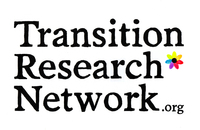Appropriate Representation
Paying attention to how people, actions and the wider movement are represented in the research.
+problem
In conventional research, the participants (or subjects of the research) rarely have a say in how their knowledge is represented or how they are portrayed.
+background
Representation has been problematic on occasion for Transition and its members. The problem of representation is not the same as rejecting any critique - Critical Thinking is a key principle in this research guidance, it is important and critical research is welcomed as it can enrich learning and practice.
Instead, the problem is one of people or initiatives being represented in a way that they do not recognise and have not had the opportunity to have input into or respond to.
The issue of representation has arisen from feminist, postcolonial and indigenous critiques of mainstream science and knowledge production (e.g. Tuhiwai Smith 1999). These critiuqes have drawn attention to the damaging effects that extractive research has had over the centuries on marginalised groups - the argument is that much western research tends to reinforce the exploitation of less powerful groups. Alternative approaches to science are thus seen as having liberatory potential, allowing the people who've often been left out of research processes or had others represent them on their behalf, to share in control of representation (Fine et al 2007).
In collaborative research, researchers and Transitioners work together at every stage, and so this problem should be minimised. It should also follow on naturally from good Accountability practices, and especially where Recognition of Authorship has been agreed. However, in non-collaborative research where there is a single researcher, good practice such as careful communication and 4.15 Being transparent should still allow for dialogue to take place that ensures the chance for input into issues of representation.
Ideally, people who are being represented in the research should have some control in these decisions, without making itimpossible for researchers to raise critical questions.
Basic issues of anonymity are essential to discuss and agree with participants in any kind of research approach - no person's identity should be "outed" in research without their explicit consent.
+solution
People who are being represented in research should have some say in how they are represented, without making it impossible for researchers to raise critical questions.
+sources
Fine, Michelle, Eve Tuck and Sarah Zeller-Berkman. in press. Do you believe in Geneva? In, Norman Denzin, Linda T. Smith and Yvonne Lincoln (eds.)
Handbook of Critical and Indigenous Knowledges
. Beverley Hills: Sage Publications
Tuhiwai Smith L (1999) Decolonizing methodologies: research and indigenous peoples Zed Books, London
